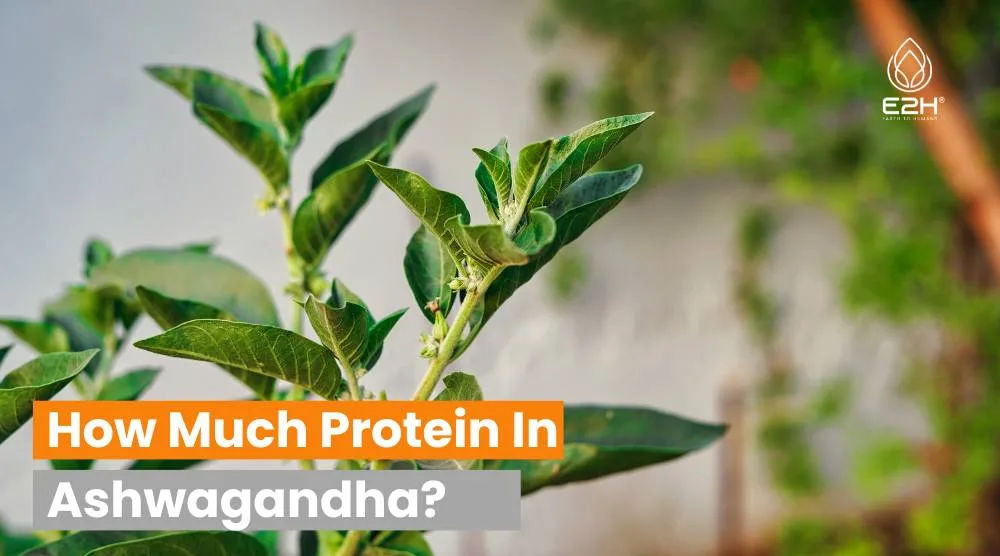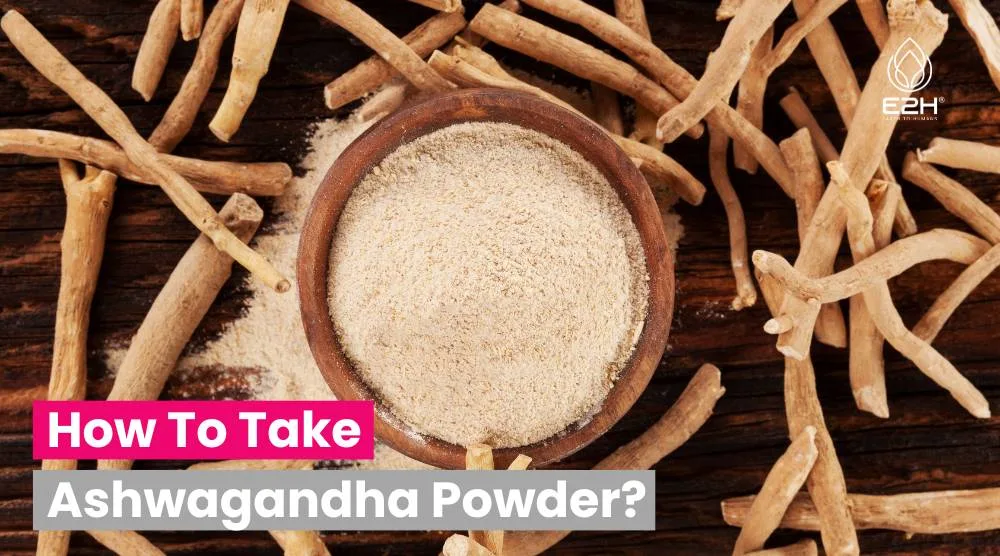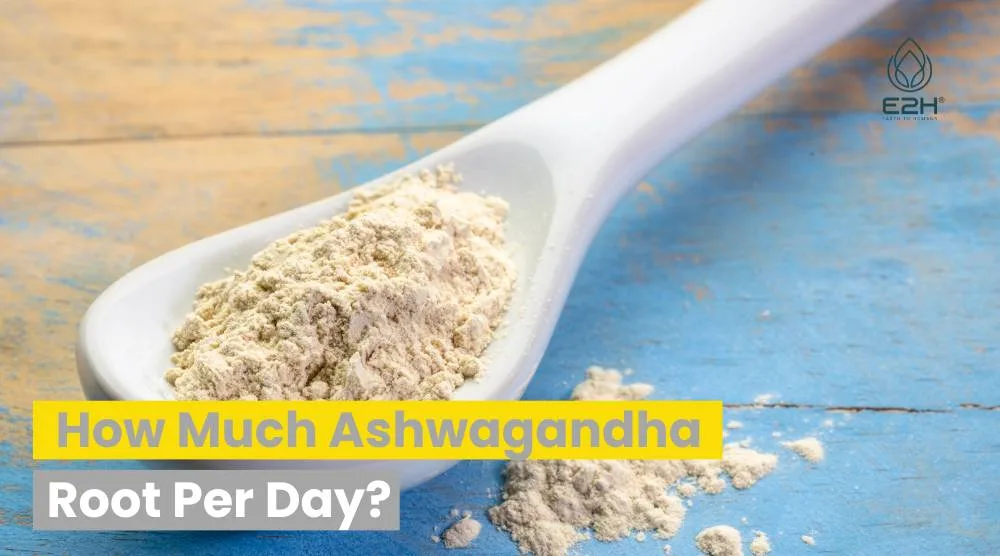How Much Protein In Ashwagandha: Ashwagandha contains minimal protein, about 0.3 grams per tablespoon. It’s primarily valued for its adaptogenic properties rather than protein content.
Curious about how this ancient herb can benefit you beyond its protein? Keep reading to uncover the remarkable health advantages of ashwagandha.
What is the protein content in Ashwagandha?
Ashwagandha, a renowned herb in Ayurvedic medicine, is not typically recognized for its protein content. In fact, the protein levels in ashwagandha are relatively low. A tablespoon of ashwagandha powder, for instance, contains approximately 0.3 grams of protein.
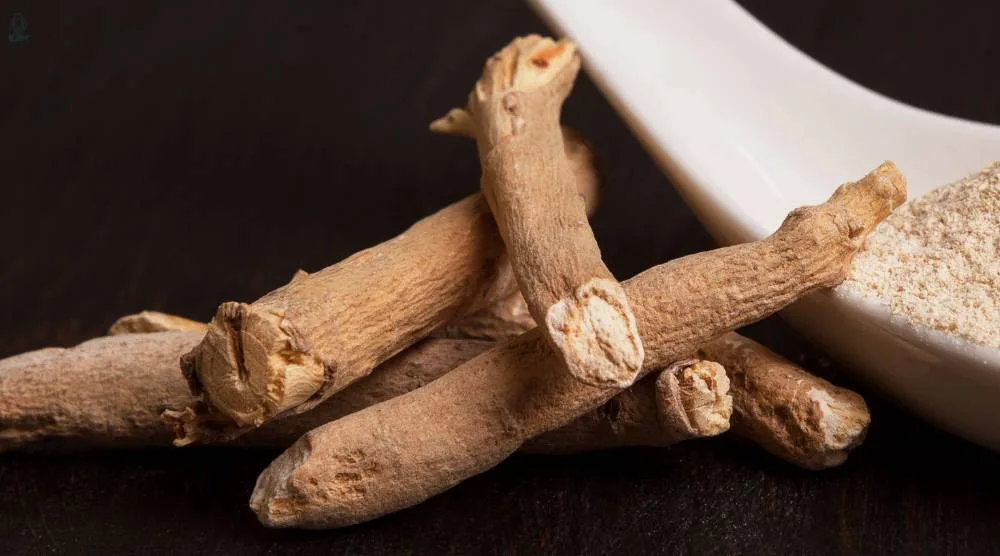
This amount is quite minimal when compared to the protein content in foods known for their high protein levels, such as meats, dairy products, or legumes. Ashwagandha’s primary claim to fame lies in its adaptogenic properties, which help the body manage stress and maintain balance. While it does contain some amino acids, the building blocks of proteins, its protein contribution to a diet is not significant.
How does the protein content in Ashwagandha compare to other herbal supplements?
When comparing the protein content of ashwagandha to other herbal supplements, it’s important to note that most herbs are not significant sources of protein. Herbs, including ashwagandha, are primarily used for their medicinal properties rather than their nutritional value in terms of macronutrients like protein.
For instance, herbs like turmeric or ginger, widely used for their anti-inflammatory and antioxidant properties, also contain minimal protein. Therefore, in the realm of herbal supplements, ashwagandha’s protein content is not exceptionally low or high. It aligns with the general trend that herbs are not relied upon as protein sources in a diet.
Is Ashwagandha more than just a herbal supplement in terms of protein?
Ashwagandha, while containing a small amount of protein, is not primarily sought after for this macronutrient. Its value extends far beyond its protein content. Ashwagandha is esteemed for its adaptogenic qualities, which help the body resist stressors of all kinds, be it physical, chemical, or biological.
These properties are linked to various health benefits, including reduced anxiety and stress, improved concentration, and potentially even enhanced energy levels. The herb’s impact on overall well-being and its ability to support various bodily functions make it a valuable supplement. However, in terms of protein contribution, it does not stand out as a significant source.
Can understanding Ashwagandha’s protein value maximize health benefits?
Understanding the protein value in ashwagandha can contribute to a more holistic view of its nutritional and medicinal profile. While the protein content in ashwagandha is low, acknowledging this helps in appreciating the herb for its true strengths rather than expecting significant nutritional benefits in terms of protein. Ashwagandha’s real health benefits lie in its adaptogenic properties, which aid in stress management, hormonal balance, and overall vitality.
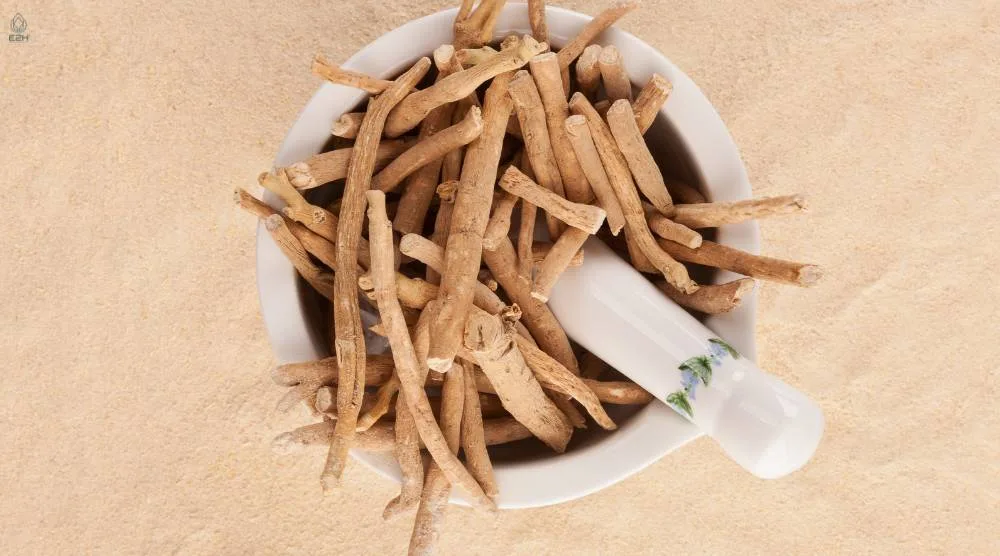
By understanding that its protein content is minimal, individuals can focus on incorporating it into their diet for the right reasons – its stress-relieving and balancing effects, rather than as a protein supplement. This realistic understanding can lead to more effective and targeted use of ashwagandha in daily health routines.
How does protein in Ashwagandha support wellness goals?
While the protein content in ashwagandha is relatively low, it still contributes modestly to wellness goals. Protein, even in small amounts, plays a crucial role in building and repairing tissues, making enzymes, and supporting immune function. In the context of ashwagandha, the protein present, though minimal, can aid in these basic bodily functions.
However, the primary wellness benefits of ashwagandha stem from its adaptogenic properties, not its protein content. These properties help the body manage stress, potentially reduce anxiety, and support overall mental and physical well-being. Therefore, while the protein in ashwagandha contributes to general health maintenance, the herb’s adaptogenic qualities are what primarily align with wellness goals.
What role does protein play in Ashwagandha’s medicinal properties?
The role of protein in ashwagandha’s medicinal properties is relatively minor compared to its other bioactive compounds. Ashwagandha is rich in withanolides, alkaloids, and other phytochemicals that are primarily responsible for its health benefits. These compounds are known for their adaptogenic, anti-inflammatory, and antioxidative properties.
The protein in ashwagandha, while essential for general health, does not significantly contribute to these medicinal properties. Instead, it’s the complex interplay of ashwagandha’s unique phytochemicals that makes it effective in reducing stress, enhancing cognitive function, and potentially improving physical performance. Thus, while protein is a valuable nutrient, it’s not the main driver of ashwagandha’s medicinal benefits.
How does Ashwagandha contribute to sports nutrition?
Ashwagandha’s contribution to sports nutrition is primarily through its adaptogenic effects rather than its protein content. Adaptogens like ashwagandha are believed to help the body cope with physical and mental stress, which can be beneficial for athletes and those engaged in regular physical activity. Studies suggest that ashwagandha may improve muscle strength and recovery, enhance cardiorespiratory endurance, and reduce muscle damage caused by exercise.
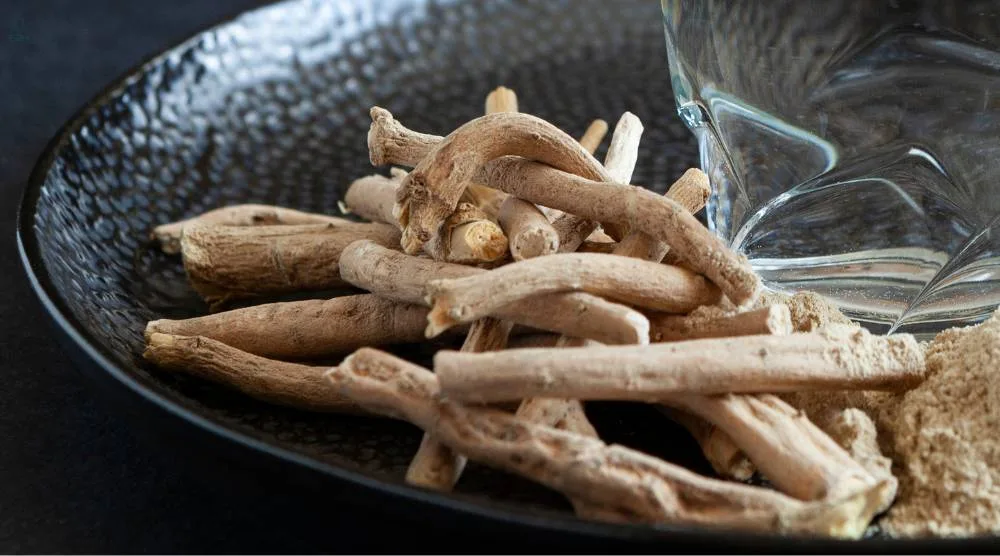
These benefits are particularly valuable in sports nutrition, where optimizing performance and recovery is crucial. While ashwagandha does contain a small amount of protein, its real value in sports nutrition lies in its potential to improve overall physical performance and recovery, making it a popular supplement among athletes and fitness enthusiasts.
FAQs For ‘How Much Protein In Ashwagandha?”
Is Ashwagandha a good source of protein?
No, ashwagandha is not a significant source of protein; its value lies in its adaptogenic properties.
Can Ashwagandha protein support muscle building?
Ashwagandha’s protein content is too low to significantly impact muscle building.
Does Ashwagandha contain more protein than other herbs?
No, ashwagandha’s protein content is comparable to most other herbs, which are generally low in protein.
Should I take Ashwagandha for its protein content?
No, ashwagandha should be taken for its stress-relieving and balancing effects, not for protein.
Does the protein in Ashwagandha aid in workout recovery?
The protein in ashwagandha is minimal and does not significantly aid in workout recovery.
Conclusion
While ashwagandha contains some protein, it’s not a notable source for this nutrient. Its real strength lies in its adaptogenic qualities, offering benefits like stress reduction and improved well-being. For those curious about “How Much Protein In Ashwagandha,” it’s important to recognize and appreciate the herb for its holistic health benefits rather than its protein content. Let this knowledge guide you in using ashwagandha effectively as part of your wellness journey.
